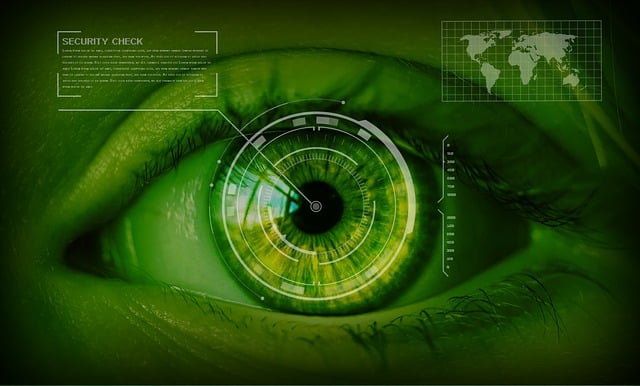Securing Private Estates: Modern Access Control Solutions

Private estates require advanced access control solutions integrating physical barriers, surveillanc…….
In an era where the value of real estate continues to climb globally, ensuring the security and integrity of properties has become paramount. Estate Security Services refers to a comprehensive array of strategies, technologies, and personnel designed to protect residential, commercial, and industrial real estate from various threats. This article aims to provide a profound exploration of this critical sector, delving into its historical roots, global impact, economic implications, technological innovations, regulatory frameworks, challenges, and future prospects. By the end, readers will grasp the multifaceted nature of Estate Security Services and its pivotal role in shaping safer, more secure communities worldwide.
Definition: Estate Security Services encompass a wide range of measures aimed at safeguarding real estate assets, encompassing physical security, risk assessment, surveillance, access control, property management, and emergency response. These services are tailored to meet the unique needs of each property, whether it’s a luxurious mansion, a high-rise apartment complex, or an industrial warehouse.
Core Components:
Physical Security: This involves securing perimeters with fencing, gates, and surveillance systems, as well as installing robust locks, alarms, and access control mechanisms.
Risk Assessment and Analysis: Identifying potential threats, evaluating vulnerability, and developing tailored security plans are essential to proactive protection.
Surveillance and Monitoring: 24/7 video surveillance, motion detectors, and advanced analytics enable continuous observation and immediate response to suspicious activities.
Access Control: Employing biometric access, keycards, and visitor management systems ensures that only authorized personnel enter the premises.
Property Management Integration: Seamless integration with property management software allows for efficient security monitoring, maintenance scheduling, and tenant communication.
Historical Context: The concept of estate security has evolved significantly over time. Historically, wealthy landowners relied on guards and armed forces to protect their properties. With urbanization and increasing real estate values, the need for more sophisticated and specialized security services became evident. The advent of technology, such as CCTV cameras in the 1970s and advanced access control systems in the 1980s, revolutionized the industry, making security measures more efficient and responsive.
Significance: Estate Security Services are vital for several reasons:
Estate Security Services are a global phenomenon, yet their implementation varies widely across regions based on economic development, cultural norms, and local laws.
International Influence:
Key Trends Shaping the Industry:
Smart Security Integration: The convergence of real estate and technology is evident in the adoption of smart locks, voice-activated systems, and integrated security platforms that offer centralized control and remote monitoring.
AI-Powered Analytics: Artificial intelligence enhances video surveillance by detecting anomalies, recognizing faces, and predicting potential threats, leading to faster response times.
Biometric Access Control: Biometric identification methods like fingerprint, facial recognition, and iris scanning enhance security accuracy and reduce false alarms.
Cybersecurity Focus: As more systems become connected, cybersecurity becomes a critical consideration. Protecting smart home devices and security networks from hacking attempts is paramount.
Sustainability and Eco-Friendly Solutions: Growing awareness of environmental issues has led to the development of energy-efficient security systems and sustainable access control practices.
The global Estate Security Services market exhibits considerable growth potential, driven by rising real estate values, increasing urban populations, and growing concerns about safety and security.
Market Dynamics:
Investment Patterns:
Economic Impact:
The industry contributes significantly to economic growth through:
Technology is a driving force behind the evolution of Estate Security Services, offering enhanced capabilities, improved efficiency, and greater responsiveness.
1. Artificial Intelligence (AI): AI-powered analytics revolutionize surveillance by identifying patterns, predicting threats, and enabling automated responses, leading to faster incident resolution.
2. Internet of Things (IoT): The integration of smart devices allows for centralized control, remote monitoring, and automated security protocols, enhancing convenience and security.
3. Cybersecurity: As more systems become interconnected, robust cybersecurity measures are essential to protect against hacking attempts and data breaches.
4. Biometrics: Advanced biometric identification technologies offer unparalleled accuracy in access control and identity verification, reducing false positives and negatives.
5. Drones and Robotics: Drones patrol perimeters, monitor large areas, and provide aerial surveillance capabilities for enhanced situational awareness. Robotic security officers may be deployed in less hazardous situations, freeing up human resources for more critical tasks.
6. Augmented Reality (AR) and Virtual Reality (VR): AR and VR technologies enable immersive training simulations for security personnel and facilitate remote security assessments and planning.
Regulatory landscapes vary significantly across countries, reflecting cultural values, legal traditions, and specific security concerns.
Key Considerations:
Despite its growth and technological advancements, the Estate Security Services industry faces several challenges:
1. Skill Shortage: The demand for highly skilled professionals in areas like cybersecurity, AI analytics, and smart home integration outstrips supply, creating a talent gap that requires addressing through training programs and recruitment initiatives.
2. Rapid Technological Change: Keeping pace with rapid technological advancements is challenging, demanding continuous investment in research and development to stay competitive.
3. Data Privacy Concerns: Balancing the need for robust security data collection with stringent privacy regulations poses a significant challenge that requires careful compliance management.
4. Budget Constraints: While security investments are essential, budget limitations, particularly in public sector settings, can hinder the adoption of advanced technologies and best practices.
5. Skilled Labor Shortage: The industry faces a shortage of qualified security professionals, especially in specialized areas like cybersecurity, requiring targeted recruitment and training initiatives to address this gap.
Overcoming Challenges:
The future of Estate Security Services holds immense potential for innovation and growth driven by technological advancements, evolving global trends, and a heightened focus on safety and security.
Emerging Trends:
Hyper-Localized Security: Customized security solutions tailored to specific neighborhoods and communities will gain prominence, leveraging local knowledge and community engagement.
Integration with Smart Cities Initiatives: Estate security systems will be more closely aligned with urban infrastructure, enabling seamless communication and coordination with other city services like transportation and emergency response.
Predictive Analytics: AI-powered analytics will move beyond reactionary mode to proactively identify potential threats, anticipate risks, and deploy resources more effectively.
Sustainable Security Practices: Environmental considerations will play a more significant role in security design, with an emphasis on energy-efficient technologies, sustainable materials, and ecologically responsible practices.
Enhanced Collaboration: Greater collaboration between public and private sector stakeholders, as well as international partnerships, will be essential to tackling complex security challenges globally.
Conclusion:
The Estate Security Services industry stands at a pivotal moment, poised for significant growth and transformation driven by technological innovations, evolving global trends, and a heightened focus on safety and security. By addressing the challenges of the present while embracing the opportunities of tomorrow, the industry can create more secure, resilient, and sustainable communities worldwide.

Private estates require advanced access control solutions integrating physical barriers, surveillanc…….

Advanced alarm systems with instant mobile notifications have transformed estate security services,…….

Estate coverage requires tailored property security services addressing size, terrain, accessibility…….

Biometric and keyless entry systems transform security services for estates by replacing traditional…….

Luxury estate security solutions require a multi-layered approach to protect high-value properties a…….

Implementing luxury estate security solutions requires understanding and adhering to complex legal f…….

Gated communities face unique security challenges requiring customized solutions tailored to diverse…….

Advanced video surveillance systems, integrating HD resolution, remote monitoring, and AI, revolutio…….

Video surveillance technology in residential security consulting has advanced significantly, offerin…….

Gated community security relies on advanced intruder detection systems integrating real-time alerts,…….